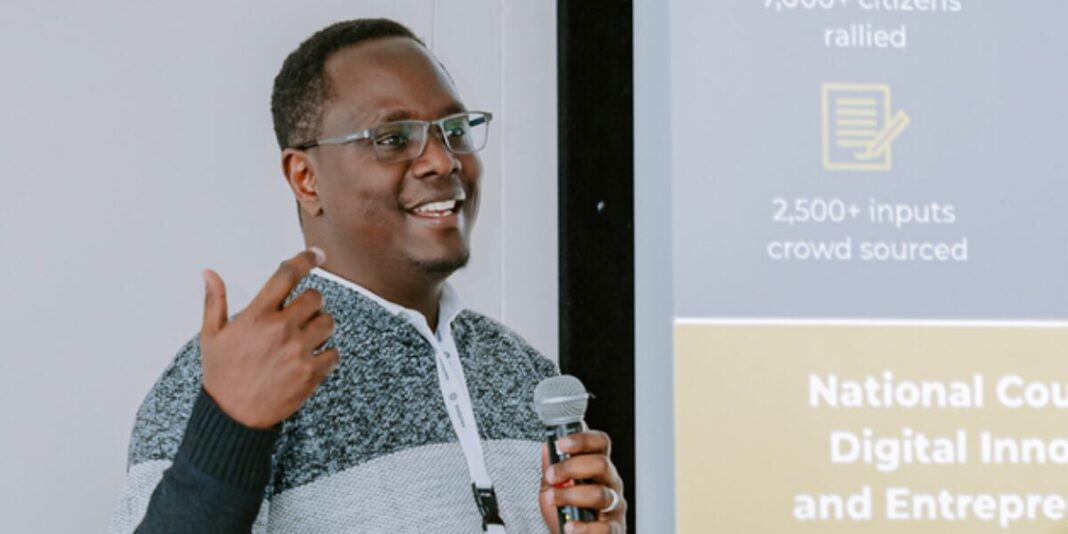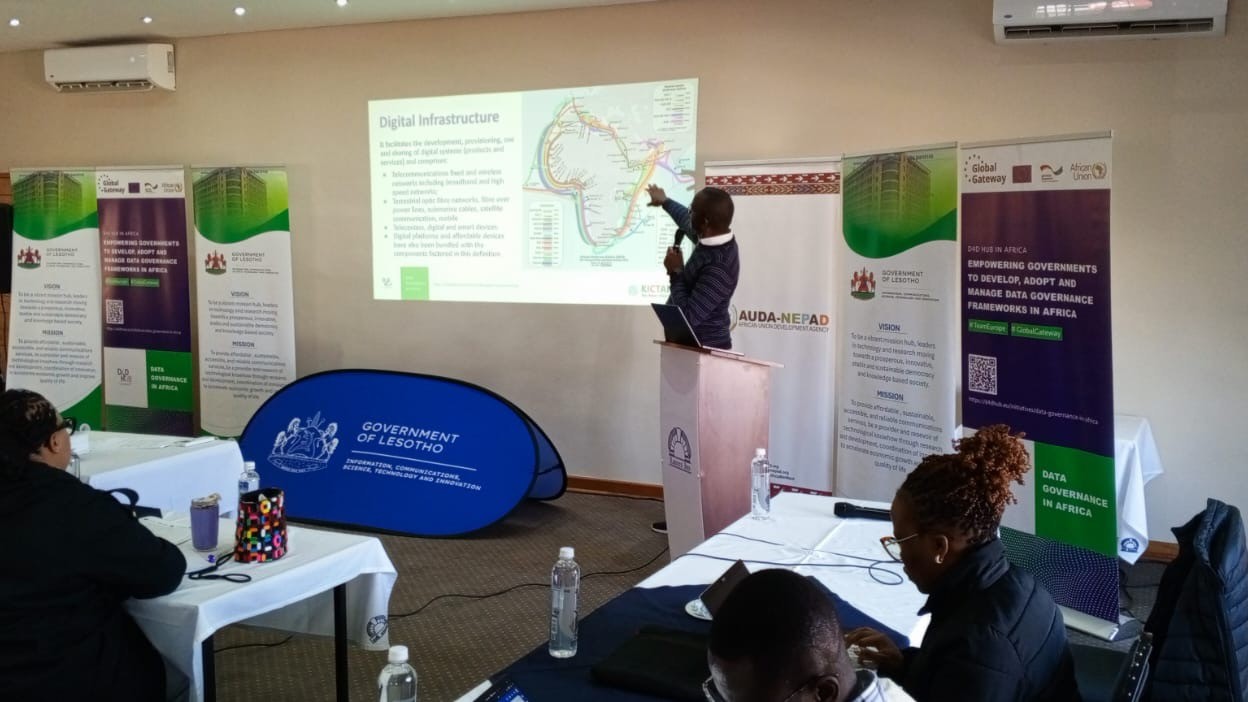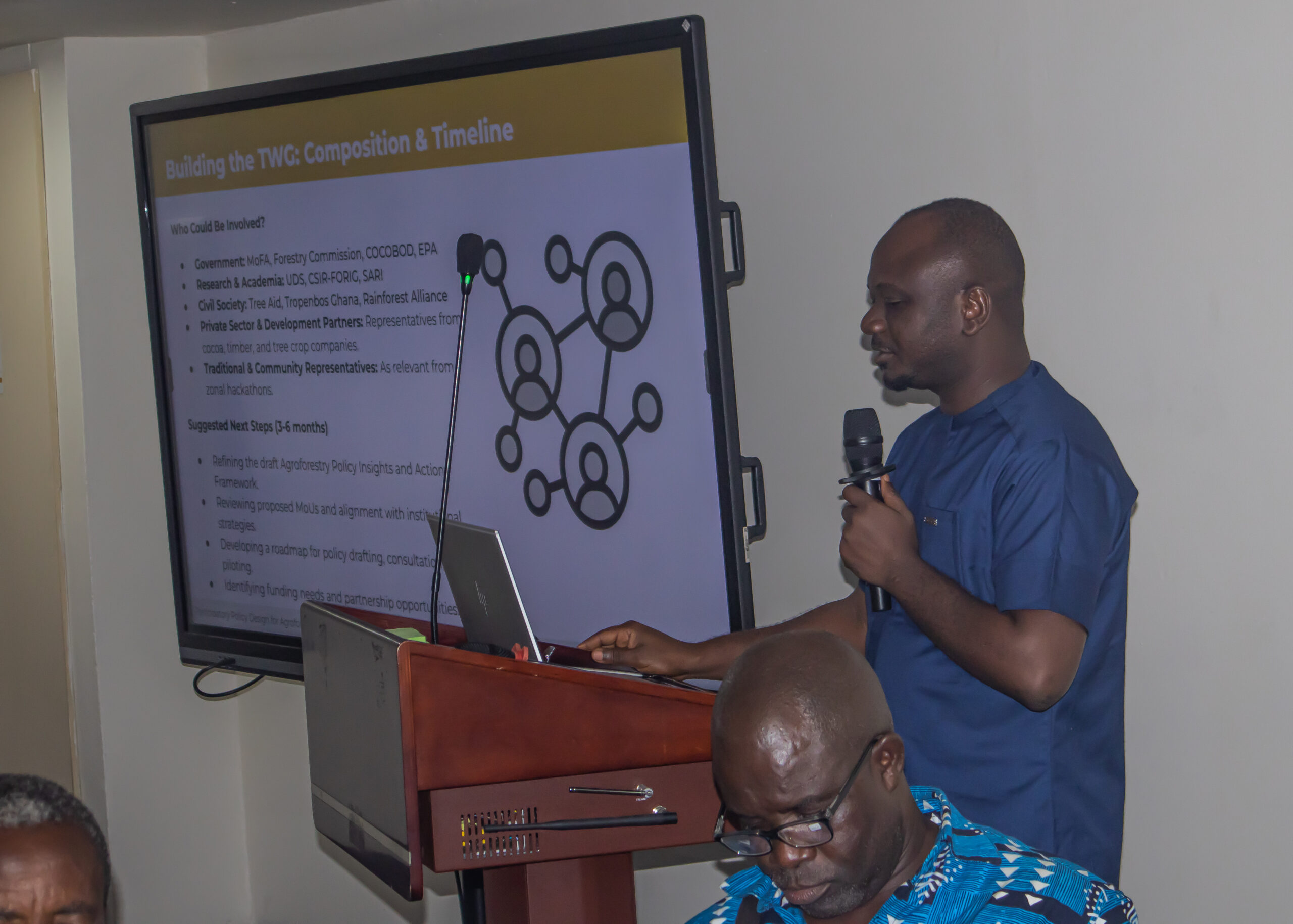
Collaborative governance is at the heart of i4Policy’s work. We believe better policies emerge when the people most affected are involved from the start. That’s why we focus on connecting citizens directly with decision-making processes and building shared understanding between communities and institutions.
Our approach, the Decision Thinking methodology, has grown over the years through hands-on work in different countries and policy areas. The work we’re now leading in Ghana – designing and implementing a national, participatory approach to support sustainable agroforestry policy – builds on earlier experiences in places like Senegal, Nigeria, and Zambia, where we focused on entrepreneurship and labor reforms. These efforts have taught us an important lesson: when people are involved in shaping policy, the outcomes are more inclusive, more representative, and more likely to last.
In Ghana, our project, commissioned by the Netherlands Enterprise Agency (RVO), aimed to understand and tackle the barriers hindering the growth of agroforestry. To achieve this, we applied our innovative and participatory ADDIS methodology. The ADDIS process is a decision-thinking framework that provides policymakers and communities with a shared language for collective, participatory public policy-making. The framework was developed to enable citizens, communities and public officials to understand, claim ownership of and re-imagine their decision-making processes. It can be applied to a wide range of social contexts, from the individual to the global level, and to all types of public policy and legislative areas.
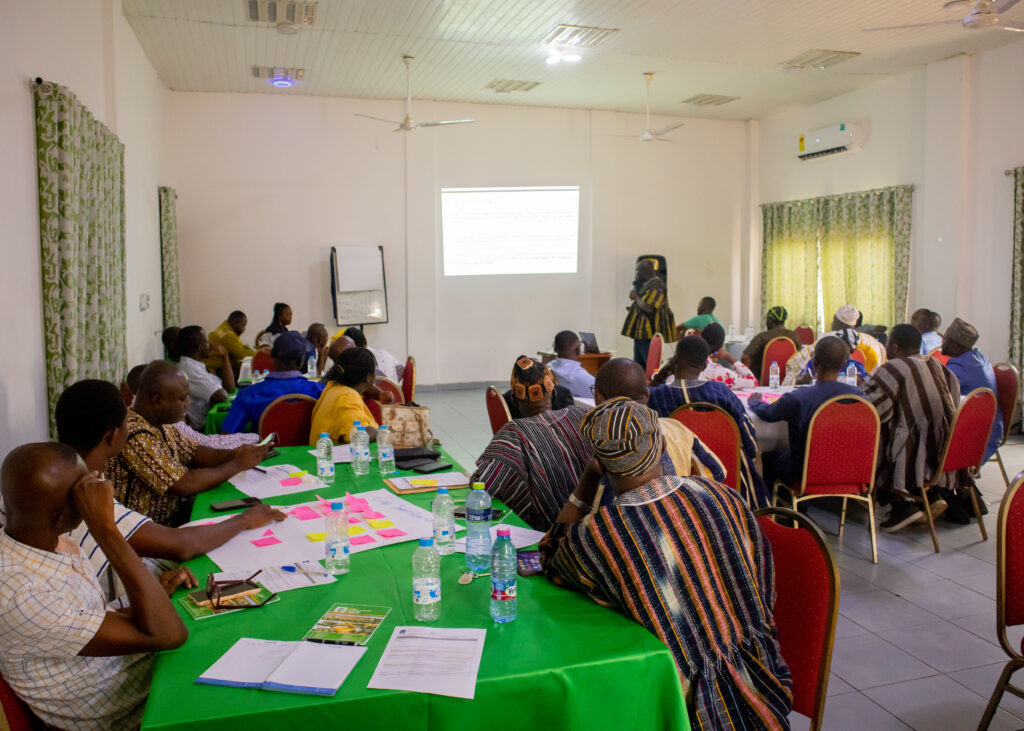
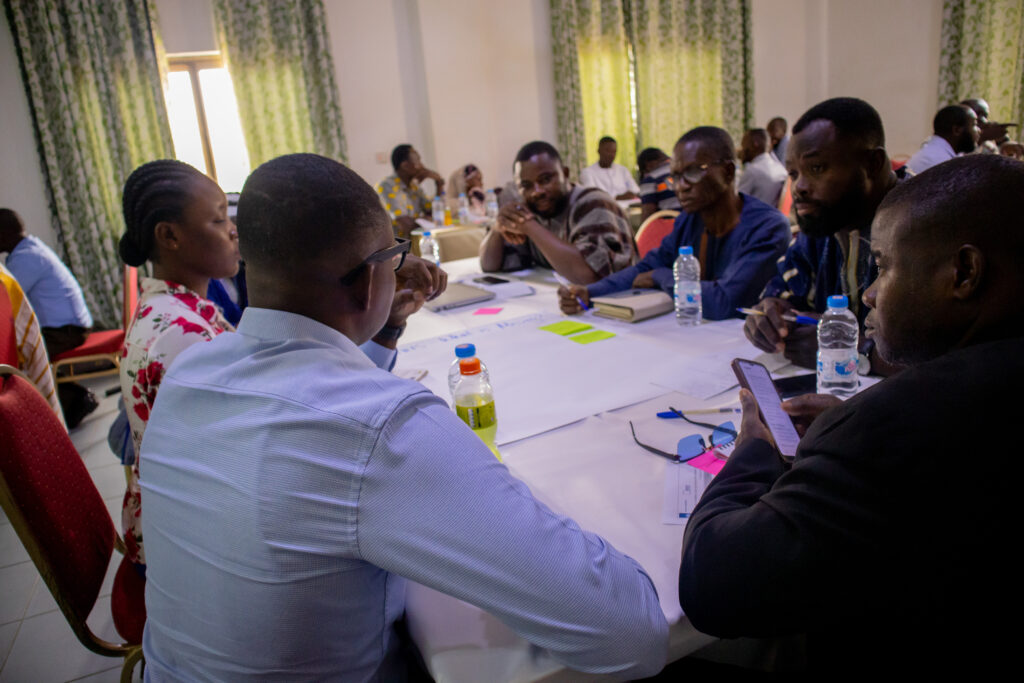
Above images taken at the Tamale Agroforestry Hackathon (May 2025)
The model evolved from combining tools from social innovation, such as human-centered design, and community organizing, with the theories and practices of participatory policymaking. For this project, we used qualitative research methods, including Focus Group Discussions (FGDs) and Key Informant Interviews (KIIs), engaging a range of stakeholders – from farmers to policymakers – in both Kumasi and Accra. This foundational work brought together around 20 participants from across Ghana’s agroforestry ecosystem.
Dennis Owusu, Project Lead at Terraformation:
“For me, both the November 2024 and May 2025 workshops have been empowering. They’ve helped bridge the gap between local stakeholders and national policymakers, not just through the increase in number of participants from the November 2024 to May 2025 workshop, but also by using local languages that allowed everyone, including those with limited literacy, to share their experiences and ideas freely. The diversity of participants from farmers to academia, NGOs, and national institutions like COCOBOD, FORIG, and EPA, for me, made the discussions rich and grounded. I strongly believe the outcomes of these workshops truly reflect the voices and endorsement of those who matter most in Ghana’s agroforestry sector.”
In Kumasi, we engaged directly with those working on the ground, while in Accra, the discussions involved more decision-makers. This approach provided a first step in understanding the complex realities shaping agroforestry in Ghana. Engaging with a diverse range of perspectives was crucial in identifying shared challenges and establishing a foundation for collaborative action. That shared understanding became the starting point of our participatory process, which is now entering its second phase.
Accra’s multi-stakeholder workshop was the culmination of the Tamale and Kumasi hackathons, with participants drawn from various stakeholder groups. The MSW, however, saw greater participation from policymakers and development partners, as well as women farmers from across the country.
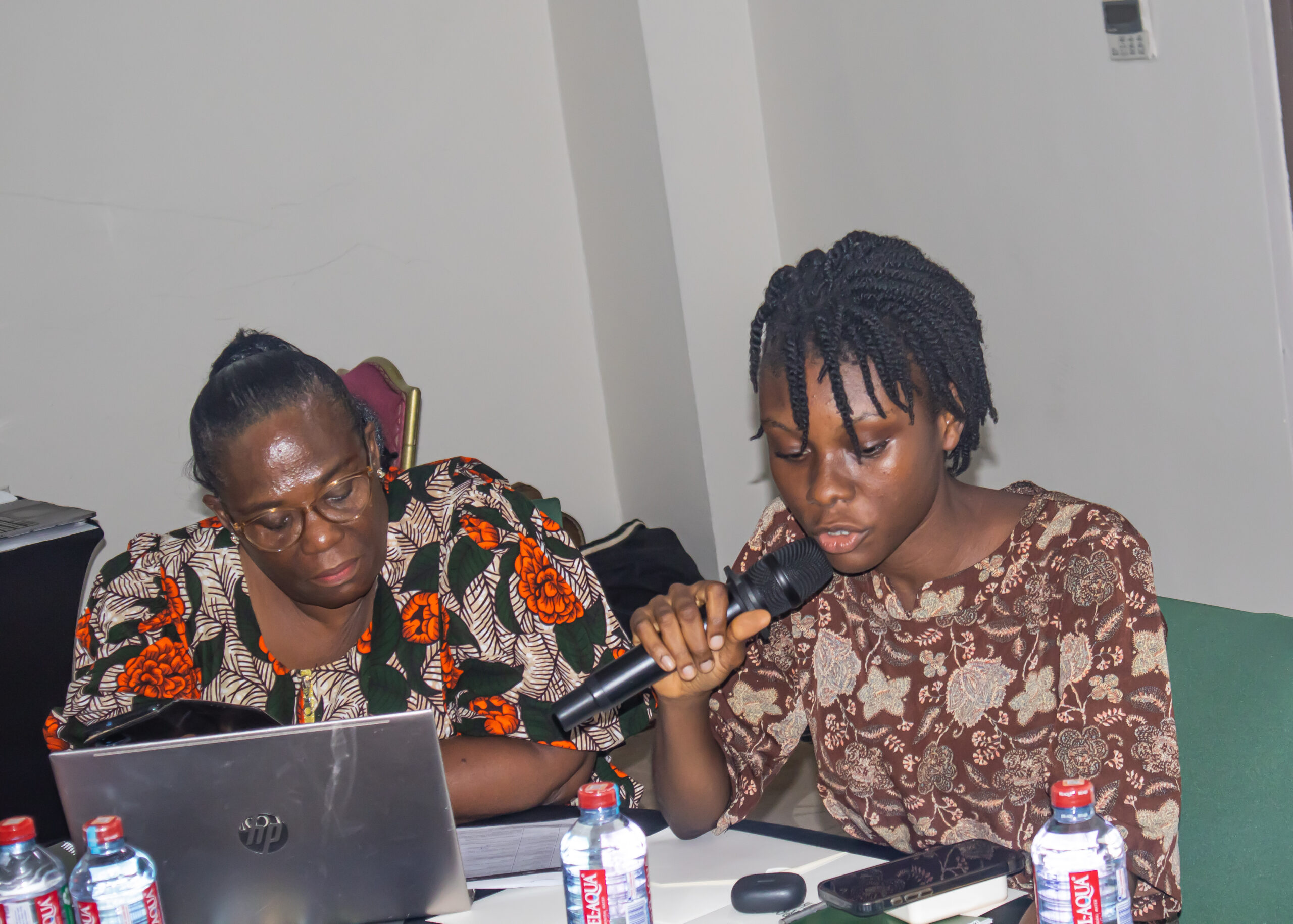

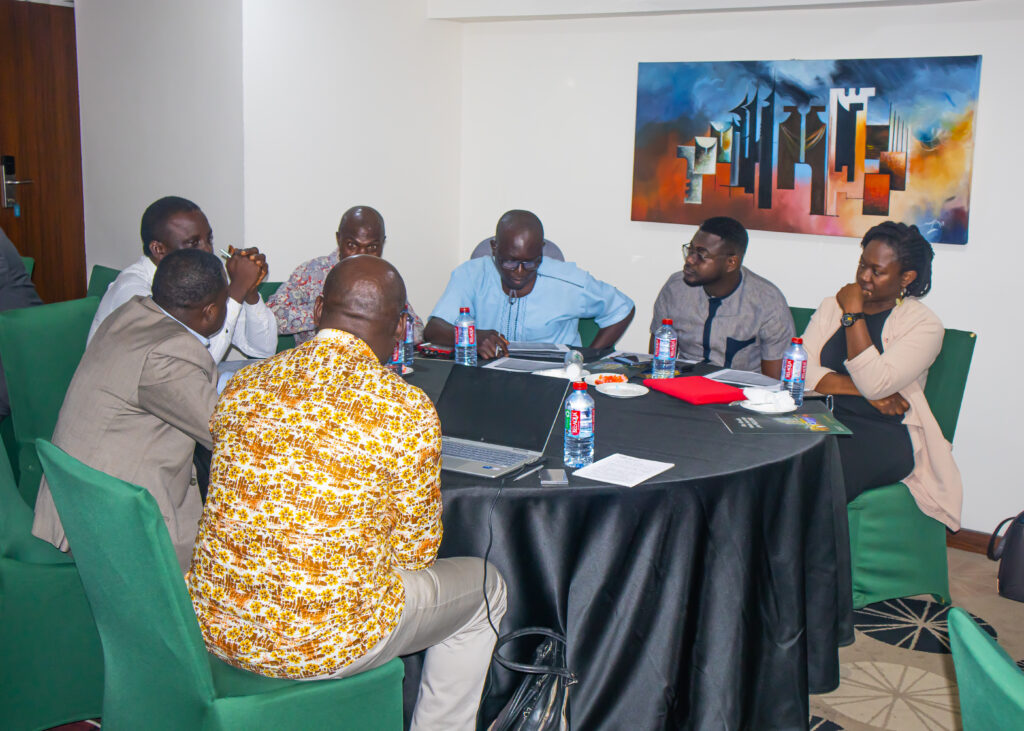
Above photos taken from Accra Multistakholder Workshop 27 May 2025
Day one of the MSW featured technical group discussion sessions where participants reviewed and validated findings from the previous hackathons, prioritised solutions, and laid the foundation for a technical working group. i4Policy experts took turns presenting the findings, while participants from the Tamale and Kumasi hackathons also shared insights from their sessions.
We used a mix of digital tools and sticky notes to enrich the group discussions. One of the participants expressed her satisfaction at the end of the day when she (Aganes) said:
“Good facilitation, very interactive, I love the use of modern technology”
The next day, which was day two, the participation increased with more policymakers joining to highlight the need for an agroforestry system.
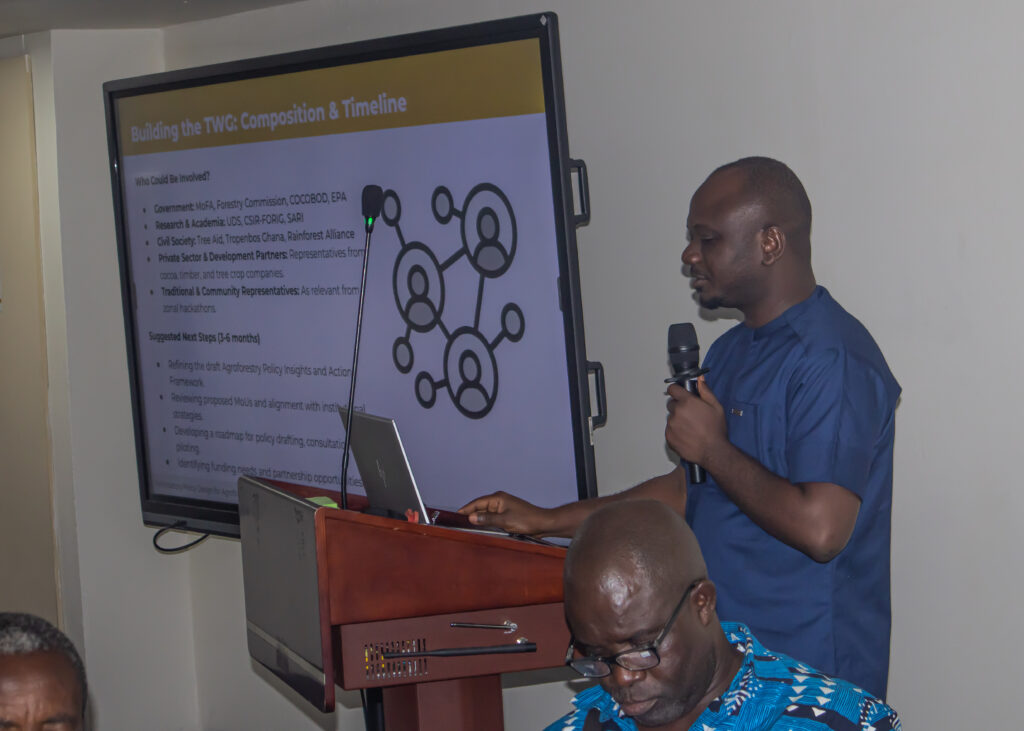
I4Policy’s Blaise Bayuo explaining the work of a Technical Working Group in Accra..
Speeches from dignitaries and open-floor discussions on the formation of an agroforestry working group formed part of the interactive sessions. When asked for his assessment of the two-day event, John Sumbo observed that:
“Discussions were good, the breaks between were ok as well. The networking was alright, flexibility of the workshop was superb”.
Day two ended with more excitement and expectations for concrete steps towards agroforestry dynamism in Ghana.
As we move forward in Ghana, our work will focus on strengthening connections between stakeholders and decision-makers across the country, using the Decision Thinking methodology. This structured participatory framework supports collective problem-solving by helping stakeholders and policymakers jointly address challenges and co-design implementable policy solutions. By deepening collaborative governance, we aim to sustain ongoing dialogue, build consensus, and promote shared ownership – ultimately creating space for diverse voices in communities. This ongoing initiative reflects i4Policy’s broader commitment to advancing democratic and participatory approaches across different policy areas, ensuring that communities remain at the center of public decision making.
The Report
Written by Sebastián Calderón

